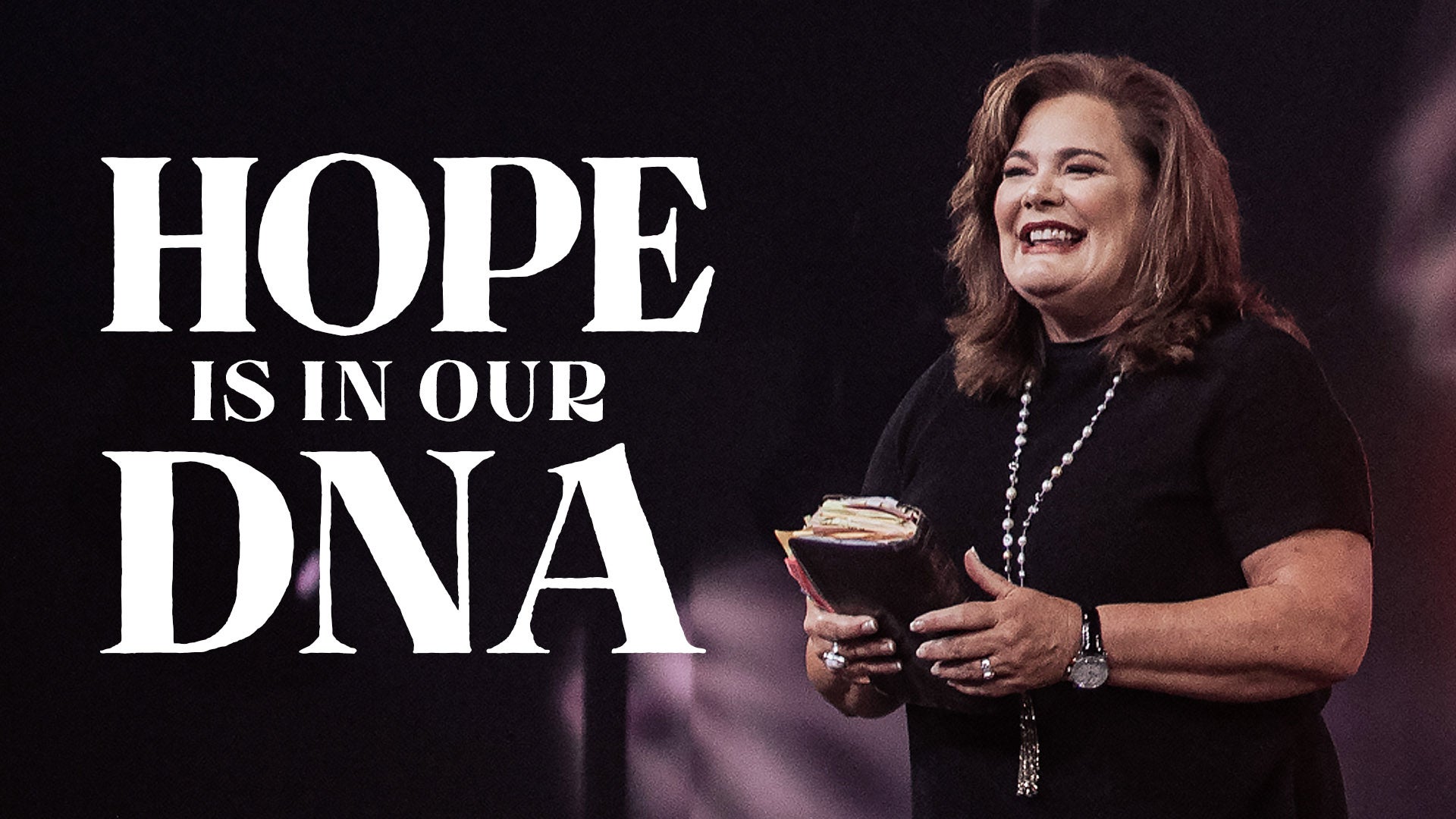
Hope Is In Our DNA
Lisa Harper
Conversation Starters
Lisa is from Nashville, Tennessee. Which would you rather do in Nashville: visit the Country Music Hall of Fame, go to the Nashville Zoo, or walk through the Cheekwood Botanical Garden and Museum of Art?
The United States will celebrate its Independence Day next weekend. What’s the best way to celebrate a holiday on a warm weekend: grilling out, visiting family, hanging out by a pool, or shooting off fireworks? (People can also share about their summer holiday traditions.)
What’s something outrageous or funny you hoped for as a kid?
Review
Ask eGroup members to share their favorite points from the sermon, what spoke to them, a phrase or moment from the sermon they related to the most, or questions they have. If members have a hard time recalling the sermon, talk through your notes and share your favorite points.
Make It Personal
First, take a few minutes with your group to talk about “hope.” You can talk about things like how they would define it, how it might have different meanings depending on how we use it (“I hope I find a job soon” versus “I hope the weather is sunny tomorrow”), how our culture treats the word differently than the Bible does, etc.
Would you call yourself a hopeful person? How easy or hard is it for you to have hope? (Encourage people to talk about how hope might be easier/harder for them in different areas of their lives. They can rate themselves on a scale of 1-10 if that helps them describe it. If you have a large group meeting via Zoom, you could have people put their ratings in the chat.)
What things are you hoping for now? How would you describe the kind of hope you have for those things? (e.g., expectant, doubtful, lukewarm, etc.)
Read Genesis 3:21-24. Before hearing Lisa’s message, would you have described this passage as hopeful or hopeless? Why?
(For more info about the Garden of Eden and the Tree of Life, check out this video.) Lisa helped us see that God removed Adam and Eve from the garden so they couldn’t also eat from the Tree of Life and live forever separated from Him. What looked hopeless was actually a setup for hopefulness. What does this reveal about God’s character? How does this help you see any situations you’re facing differently?
Hope is not based on the “now” for Christ followers, but on God’s goodness. What are some ways we put our hope in circumstances instead of God? What consequences have you seen from doing that in your own life? (Encourage group members to make this personal to their lives and situations.)
Where in your life do you need to restore hope or hope differently? Why? Based on Lisa’s message, what can you do to help with that? (Encourage group members to be specific to their situations.)
Read Genesis 1:26-27 and Genesis 2:1-3. God modeled relationship and rest for us. How do relationships and rest impact your hope? (Be specific to yourself.) What can you do to be more intentional about relationships or rest in this season?
Act On It
People need hope right now. Who around you is in need of hope? Reach out to them this week. Ask how you can pray for them and believe with them. Consider doing something physically (like buying them groceries) if they’re struggling financially or unable to leave their home. (If there’s something you can do together as a group to give hope, do it!)
Prayer Requests And Prayer
Ask eGroup members to share any prayer requests they have. Record any notes or prayer requests to pray for members during the week.Father, thank You for always being on the move to restore and redeem the areas of our lives we think are beyond hope. This week, please open our eyes to the hope You’ve already placed around us. Give us the perspective to see You working in even the most hopeless-seeming situations, and show us how we can bring hope to those who need it. In Jesus’ name, amen.